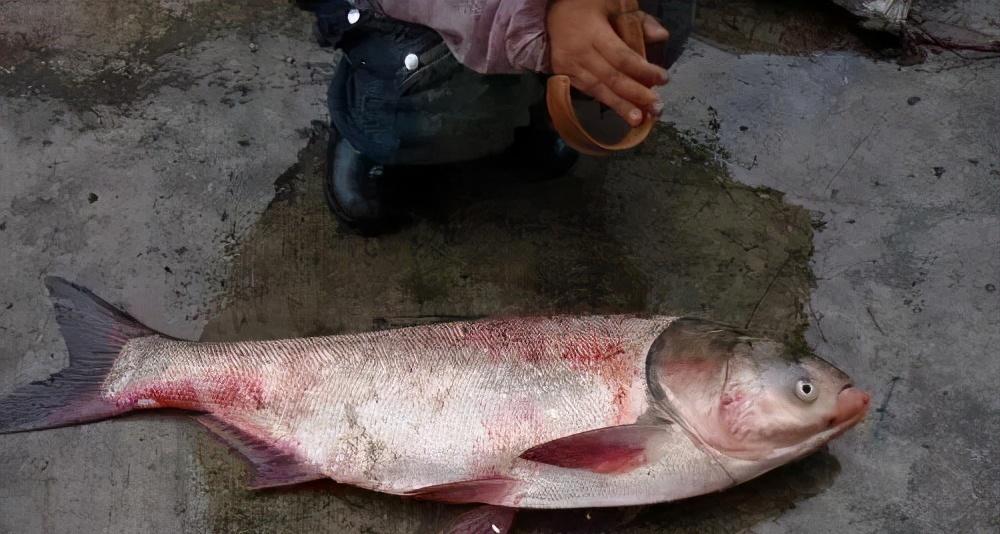Parasitic diseases are one of the common diseases of aquaculture animals and a major problem for farmers. In the process of breeding, in order to effectively prevent and control parasitic diseases, regular insecticide has become one of the important tasks of farmers. But in fact, the use of a large number of insecticides in breeding will not only fail to effectively eliminate parasites, but also lead to increased resistance of parasites, and also easily damage the ecological balance of the breeding environment. The prevention and control of parasitic diseases focuses on prevention, not treatment, and today we will talk about the prevention and control of winter parasites.

Parasite hazards
1. Mechanical irritation and injury
Mechanical irritation and tissue damage are a common feature of parasitic diseases. For example, a mackerel parasitizes, with its mouthparts and barbs on the ventral surface of the dorsal carapace, it stabs and tears the skin of the host, making the host very uneasy, and the sick fish swim wildly and jump away from the water. The parasitism of the Greater Chinese gill can cause inflammatory edema and cell hyperplasia of gill tissue, and the appearance of the gill filament end is enlarged and whitish. Mechanical stimulation and injury can directly cause death.
2. Squeezing and blocking
Some parasites that parasites in fish can often cause pressure on host tissues and organs, causing atrophy, necrosis and loss of physiological functions. This lesion is more common in the parenchymal organs. For example, in addition to affecting the development of the gonads, the tongue tapeworm can also make the body cavity of the diseased fish bulge and bulge, affect swimming, and even abdominal distension, resulting in death. The large parasitism of lateral trematodes can cause the intestines of small fish to block and cause death. Blockage can also occur in blood vessels, such as schistosomiasis is a typical case, the triangular worm egg blocked the renal blood vessels, gill blood vessels, causing edema and gill necrosis.
3. Plunder the nutrients of the host
The parasite's nutrition is taken from the host, and the result must be some kind of harm to the host, from malnutrition, affected growth and development, and death. For example, on the gills of sturgeon, each insect body draws 0.5 ml of blood from the gills every day, and each sturgeon can parasitize 300-400 worm bodies when it is severe, so that the host can lose up to 150-200 ml of blood per day, so that the diseased fish will quickly lose weight.
4. The role of toxins
Parasites in the parasite process, its metabolites are excreted in the host. Some parasites can also secrete unique toxic substances, which have a certain impact on the host. For example, glandular cells at the base of the chickadee can secrete toxins; greater Chinese loach can secrete enzymes for extraintestinal digestion when feeding.
Precautions
Pathogens, immunity, environment, and three elements constitute the basic causes of the disease, so starting from these three aspects, as accurate as possible to "comprehensively prevent" the parasite.
1. Pay attention to strengthening the nutrition of fish
During the wintering of fish, the physical consumption is larger, therefore, it is necessary to choose a better compound feed feeding, and regularly add immunomodulatory products to the feed, such as: "compound immune polysaccharide", "immune protropicin", etc., which can improve the physique of fish, enhance the resistance to pathogens such as external parasites, and effectively prevent the outbreak of parasitic diseases.
2. Kill the parasites carried by the fish body
Since the fish body more or less carries a certain parasite before wintering, once the water temperature rises, these parasites are easy to multiply in large quantities, so that the fish body is infected in large quantities. Some safe, efficient and pollution-free disinfection drugs can be selected, in addition, it is recommended to use "water worm purification" to treat the water environment and change the growth environment on which parasites breed.
3. Tools only
The tools used for fish farming often become the vector for the transmission of fish diseases, and it is best to use the tools for the purpose of the pond when conditions permit. If there is difficulty, the used tools should be sterilized before use.
4. Avoid fish body injuries
Fish body mucus layer, scales, skin, mucous membranes and secretions of various organs have the effect of preventing bacteria, parasite invasion, when the fish body is damaged, pathogens can take advantage of it, it is easy to enter the fish body and a large number of reproduction, so that outbreaks of fish diseases, such as red skin disease, water mold, etc. are usually infected in the case of fish damage, to avoid fish body injury is an important part of the prevention of fish disease work.
During the wintering period, due to the less water change in the pond, the metabolic waste of various aquatic organisms accumulates in the water, which will produce a large number of toxic products, which will greatly reduce the resistance of fish, and the probability of infection with various diseases, including parasites, will increase, so the work of water transfer and bottom modification should continue, and "strong oxygen bottom net", "detoxification bottom change", "detoxification stress spirit" and so on can be used.